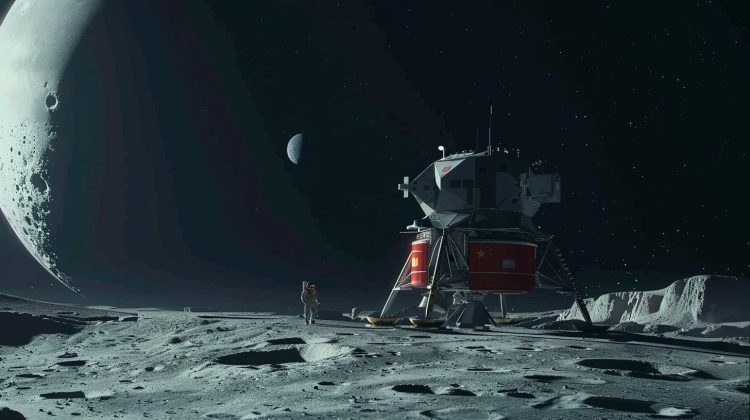In the vast expanse of space, nations are competing for dominance in what has become known as the 21st-century space race. While the United States and Russia have long been the frontrunners in space exploration, China has emerged as a formidable contender, with ambitious plans and significant advancements in recent years. But what would happen if China were to emerge victorious in this space race, establishing itself as the dominant force in outer space? This article explores the potential implications of such a scenario, delving into the geopolitical, technological, and socio-economic changes that could reshape our world.
The Geopolitical Landscape
A Chinese victory in the 21st-century space race would undoubtedly have profound geopolitical ramifications. Space dominance is not merely about scientific achievement; it is also about strategic advantage and global influence. Much like the Cold War era, where the space race was a reflection of the broader geopolitical rivalry between the United States and the Soviet Union, a Chinese triumph would signal a shift in the balance of power.
China’s dominance in space could lead to increased geopolitical tensions, as other nations seek to counterbalance its influence. The United States, in particular, may feel threatened by China’s ascent and could intensify its own space efforts to maintain its position as a superpower. This could potentially reignite a new era of space competition, reminiscent of the rivalry between the US and the USSR during the Cold War.
Moreover, China’s dominance in space could also bolster its diplomatic leverage on the global stage. With control over crucial space infrastructure such as satellites and space stations, China could wield significant influence over telecommunications, navigation, and surveillance systems, giving it a strategic advantage in international affairs.
Technological Advancements
A Chinese victory in the space race would undoubtedly accelerate technological advancements in space exploration and related fields. China has already demonstrated its capabilities with successful missions to the moon, Mars, and beyond. With increased resources and international prestige, China could invest even more heavily in space research and development, driving innovation in areas such as propulsion systems, robotics, and resource utilization.
Furthermore, China’s advancements in space technology could have far-reaching implications for terrestrial industries. For instance, the development of asteroid mining technology could revolutionize the global economy by providing access to vast quantities of rare minerals and metals. Additionally, advancements in space manufacturing could lead to the production of novel materials with properties not possible on Earth, opening up new possibilities for industry and commerce.
Socio-Economic Impact
The socio-economic impact of China’s victory in the space race would be multifaceted. On the one hand, increased investment in space exploration and technology could stimulate economic growth and create jobs in related industries. China’s space program already employs thousands of scientists, engineers, and technicians, and further expansion could bolster employment opportunities and drive innovation in the domestic economy.
On the other hand, the benefits of China’s space dominance may not be evenly distributed. As with any technological advancement, there is a risk of exacerbating existing inequalities, both within China and globally. Wealthier nations may have greater access to the resources and opportunities afforded by space exploration, leaving poorer nations behind. Moreover, concerns about space militarization and the weaponization of space could further exacerbate global tensions and instability.
Environmental and Ethical Considerations
While the prospect of China winning the 21st-century space race holds great promise for scientific discovery and technological advancement, it also raises important environmental and ethical considerations. Space exploration can have significant environmental impacts, from the depletion of natural resources to the generation of space debris. As China ramps up its space activities, it will be essential to mitigate these impacts and ensure that space exploration is conducted in a sustainable manner.
Furthermore, questions of equity and ethics must be addressed as humanity ventures further into space. Who owns the resources found on celestial bodies? How should they be exploited and distributed? These are complex questions that will require international cooperation and dialogue to resolve. China, as a major player in the space arena, will play a crucial role in shaping the answers to these questions and determining the future of space exploration.
In conclusion, a Chinese victory in the 21st-century space race would have far-reaching implications for the world. It would reshape the geopolitical landscape, drive technological advancements, and impact socio-economic development on a global scale. However, it is essential to approach the prospect of Chinese space dominance with caution and foresight, considering the environmental, ethical, and geopolitical challenges that accompany such a scenario. Ultimately, the future of space exploration will depend on the collective efforts of nations working together to unlock the mysteries of the cosmos and ensure that the benefits are shared equitably among all of humanity.









